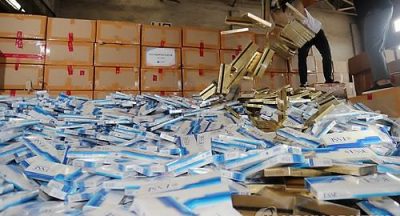Spotting Fakes
From drugs to gadgets, the share of counterfeits in global trade, according to an OECD estimate, stands at 7-10%. The implications worsen with currency counterfeiting. However, fighting fakes has never been easy; the technology behind the spurious has often caught up with, and sometimes even outpaced, that of the authentic. But with non-cloneable identification (nCID), the trend may yet reverse. A Pune-based company, Bilcare, has developed nano-microparticles-enabled authentication that could nail even the best fakes—minuscule amounts of such particles of metal are embedded on an nCID chip on the packaging of a product. Under a magneto-optic sensor, the nCID chip generates a non-reproducible, digitised image unique to the packed unit—‘non-reproducible’ meaning that even the manufacturer of the chip can’t make a copy. The image can then be transmitted through mobile or internet gateways, and the manufacturing site, date and other particulars of the packed unit can be verified. Thus, even the closest lookalike would fail the magneto-optic test.
http://www.financialexpress.com/news/spotting-fakes/1233281?rhheader
Related Posts
Customs agency nails 7 cigarette smugglers
South Korea's customs authorities said Tuesday they have arrested or indicted...
Health Ministry circulates cabinet note to eliminate illicit trade in tobacco.
The Health Ministry has circulated a draft cabinet note for approval to the...
Authorities fear illicit tobacco trade is moving from Gloucester shops to ‘tab houses’ on estates
Fears have been raised that the war on illicit tobacco could soon take a sinister...
Shanghai police bust gang for fake Dyson hairdryers.
Shanghai police have cracked a criminal gang suspected of manufacturing and...





